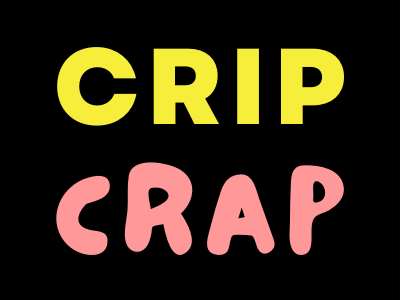Resources in the Event of Care Cuts
By Kennedy Dawson Healy
I’ve lived for 30 years in a body that requires a lot of care. I’ve likely received this care from hundreds of people - family, friends, in-home care workers, daycare and school staff, medical professionals, and others. A lot of my care has been rife with imbalanced power dynamics and trauma, but not all of it. The best care I have received is present, graceful, and attentive care, careful care. Steady and patient. And often requires me to meet the person providing care here – at trust. Trust is especially important in situations that become fragile, under precarious systems. In power dynamics that allow me to stay more in control, in my body, I can usually look a care worker in the eye when we or the equipment fail and get us where we need to go with calm, direct direction. The care workers I’ve built the most trust and access intimacy with quickly meet or beat me here. In the first week of a second Trump presidency, I wonder if this kind of tango is a useful roadmap for moving forward.
Five years into a pandemic, over a year of live-streamed genocide in Palestine, fresh off hurricanes raveging the south, as LA burns to the ground — showing up to build trust feels harder and more important than ever before. Our fear leads us to denial or panic, while courage asks us, when possible, to teeter somewhere between, ready to act and respond to events as they unfold. Since the election results, I have been grappling with the possibility and potential timing of losing the flimsy care services I currently have through Medicaid in Illinois. The right is considering major cuts to Medicaid. The amount of Medicaid funding from the state and federal government varies state to state. It is possible some states may attempt to fill in gaps of waning federal funding, while other states will not. People will die from these decisions. Many are currently hanging on by the threads of these systems, systems I have also watched kill my friends, systems that currently deny plenty of people agency and care. It is not in my own naivety of the reality that collapse will bring, but in the love and memory of those already dying from these systems that I ask we consider what possibility lies in the fall of these programs.
It is crucial we ask ourselves now what kind of organizing will feed the most life going forward. Disability justice leaders have been doing education around alternatives to our existing systems of care and control for decades. I offer the following resources from a variety of writers, activists, and organizations as tools to begin building the care collectives and webs we require. Care collectives are groups of people that can take various shapes and work to meet each other's needs outside of formalized systems of paid care. We must continue to be strategic in learning to meet each other's everyday needs, in praxis, in community and through more private acts of solidarity. Take what is useful to you here and use it alongside whatever resources or relationships work for you or you must engage with to survive. I hope it helps you build safe community. While I highlight these in relation to the potential of losing formalized systems that provide certain disabled individuals care, many of them can also be applied to supporting each other's mental health and more general organizing and mutual aid.
Books for Purchase
Care Work: Dreaming Disability Justice
by Leah Lakshmi Piepzna-Samarasinha
Just Care: Messy Entanglements of Disability, Dependency, and Desire
by Akemi Nishida
Online Writing/Tools/Resources
Website by Loree Erickson
“The Pace We Need to Go”: Creating Care Culture
Newsletter Article by Mary Jeane Hande and Muna Mire
Sample Care Worker Management Materials
Versions of resources I’ve made to manage paid care over the last 12 years, could also be adapted for a care collective
Webpage by Elliott Fukui
Facilitated by cherry
By Mia Mingus for the Bay Area Transformative Justice Collective (BATJC)
*this resource is specifically for identifying support people in a transformative justice process, but could also be applied to thinking through connections for forming a care collective
Times are dire, and we are all worth saving – including you. If you’ve been repeatedly told you’re not, or your needs often go ignored or unmet, I hope you communicate what you deserve.
I hope you build. I hope you fight.
May you find what you need in trust and care.
This piece was written by our founder, Kennedy Dawson Healy. Read more about her on our team page.
